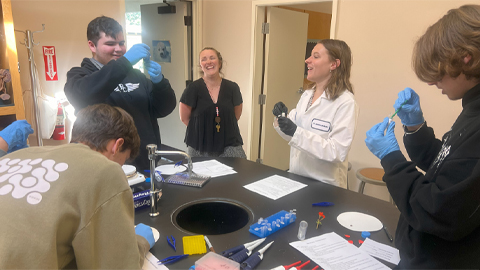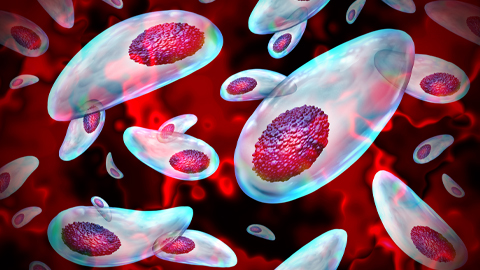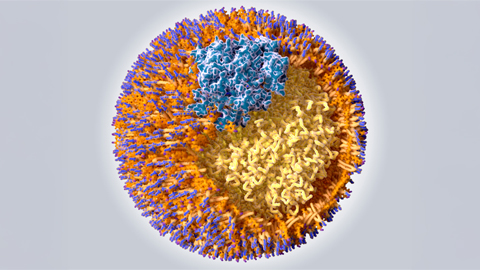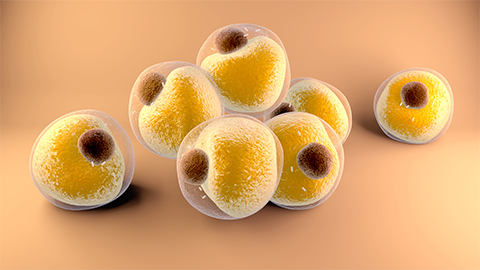Tackling adversity: Tales of the epigenome
2020 was a horrendous year. As the pandemic raged, millions of people around the globe faced, in addition to the threat of COVID-19, the longstanding adversity of chronic health disparities. But as we watched these populations’ disproportionate suffering, we also witnessed their resilience.
Our session will focus on how early-life adversity and stress at the genomic level influence susceptibility to diseases such as diabetes, metabolic syndrome and mental health that augment health disparities later in life. The sessions also will cover molecular resilience and how the genome is sufficiently dynamic to overcome these epigenetic roadblocks.
Keywords: epigenetic marks, health disparities, early-life stresses, nutrigenomics
Who should attend: anyone interested in learning how genomic and subgenomic stresses early in life lead to adversity and health disparities later in life and how the genome is dynamic and can overcome some of these roadblocks
Theme song: “Rain on Me” by Lady Gaga, featuring Ariana Grande. “Rain on Me” is a beautiful tribute to going through adversity, not giving up, and coming out the other side stronger. This energizing dance song is all about embracing life, imperfections and all.
This session is powered by the need to let everyone know that stress doesn’t define us and that we are resilient in the face of adversity.
Talks
- Intergenerational inheritance of altered metabolism phenotypes after early-life stress in Caenorhabditis elegans — Sarah Hall, Syracuse University
- Programmed epigenetic risk: Can stress exposures in utero predispose infants to obesity and metabolic disease? — Kristen Boyle, University of Colorado, Anschutz Medical Campus
- A sex-specific role for long noncoding RNA in depression susceptibility and resilience — Orna Issler, Icahn School of Medicine at Mount Sinai
- Epigenetic mediators of risk for metabolic disease — Mary Elizabeth Patti, Harvard Medical School
- Rethinking the stress paradigm: Exploring new connections between epigenetic adaption and cellular stress — Kaushik Ragunathan, University of Michigan Medical School
- The role of maternal factors in epigenetic programming of neurodevelopment — Patrick McGowan, University of Toronto
- Epigenetic marks identify asthma susceptibility in African Americans — Ivana Yang, University of Colorado Anschutz Medical Campus
- Chronic stress, omics and asthma — Juan C. Celedon, University of Pittsburgh
- Live fast, die young: The role of epigenetics in stress and aging — Anthony Zannas, University of North Carolina at Chapel Hill
- Sex-dimorphism in aging: Are we missing half of the picture? — Berenice A. Benayoun, University of Southern California
- Consequences of early-life starvation on adult lipid metabolism — Ryan Baugh, Duke University
- Early-life stress and epigenomic regulation of behavior — Julie-Anne Balouek (Rodier), Princeton University
- Extracellular vesicles as stress signals: Identifying novel systemic mechanisms of trauma programming — Tracy L. Bale, University of Maryland School of Medicine
Learn more
Check out all ten thematic symposia planned for the 2022 ASBMB annual meeting:
Enjoy reading ASBMB Today?
Become a member to receive the print edition four times a year and the digital edition monthly.
Learn moreFeatured jobs
from the ASBMB career center
Get the latest from ASBMB Today
Enter your email address, and we’ll send you a weekly email with recent articles, interviews and more.
Latest in Science
Science highlights or most popular articles

E-cigarettes drive irreversible lung damage via free radicals
E-cigarettes are often thought to be safer because they lack many of the carcinogens found in tobacco cigarettes. However, scientists recently found that exposure to e-cigarette vapor can cause severe, irreversible lung damage.

Using DNA barcodes to capture local biodiversity
Undergraduate at the University of California, Santa Barbara, leads citizen science initiative to engage the public in DNA barcoding to catalog local biodiversity, fostering community involvement in science.

Targeting Toxoplasma parasites and their protein accomplices
Researchers identify that a Toxoplasma gondii enzyme drives parasite's survival. Read more about this recent study from the Journal of Lipid Research.

Scavenger protein receptor aids the transport of lipoproteins
Scientists elucidated how two major splice variants of scavenger receptors affect cellular localization in endothelial cells. Read more about this recent study from the Journal of Lipid Research.

Fat cells are a culprit in osteoporosis
Scientists reveal that lipid transfer from bone marrow adipocytes to osteoblasts impairs bone formation by downregulating osteogenic proteins and inducing ferroptosis. Read more about this recent study from the Journal of Lipid Research.

Unraveling oncogenesis: What makes cancer tick?
Learn about the ASBMB 2025 symposium on oncogenic hubs: chromatin regulatory and transcriptional complexes in cancer.


